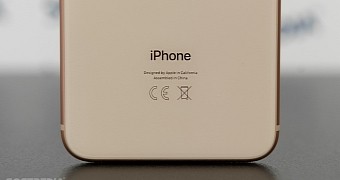The FBI is once again requesting Apple to break into password-protected iPhones, this time belonging to the Mohammed Saeed Alshamrani, the shooter in the Pensacola Naval Air Station attack.
Extracting the data stored on the device could help during the investigation, the FBI says in a letter sent to Apple this week, adding that guessing the passcode has so far been unsuccessful.
Saudi Arabian national Alshamrani killed three people in the shooting, and the FBI says it’s trying to figure out how he managed to purchase the gun given that foreign individuals aren’t allowed to own firearms in the United States. Data on the phones could help, the FBI explains.
FBI General Counsel Dana Boente, who signed the letter, reveals they have already reached out to other federal agencies and various experts to unlock the two iPhones. Boente says the FBI has received the court permission to unlock the phone, but doing this without Apple’s help is impossible given the passcodes.
Apple unlikely to help
Alshamrani, who was shot death by a deputy during the attack, was using two different iPhones, one of which has been damaged during the shooting. FBI says it needs Apple help to extract data from both devices, especially as the physical damage makes the whole thing more difficult on the second iPhone.
Apple explained in a statement for NBC News that it’s already working with the government on this, but suggested that apart from providing data stored in the cloud, the company won’t do anything about the password-protected iPhones.
“We have the greatest respect for law enforcement and have always worked cooperatively to help in their investigations," Apple said in a statement. "When the FBI requested information from us relating to this case a month ago, we gave them all of the data in our possession and we will continue to support them with the data we have available.”
The FBI first reached out to Apple to unlock an iPhone in late December when it tried to extract information from the device owned by the San Bernardino shooter. Apple refused to do so, claiming such a backdoor would have compromised the security of all its devices. The FBI eventually turned to an undisclosed third-party who broke into the device.

 14 DAY TRIAL //
14 DAY TRIAL //